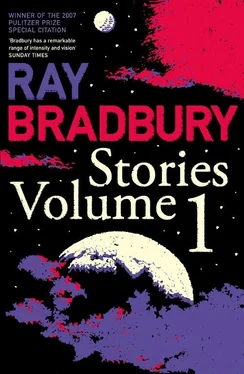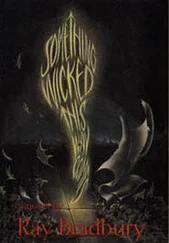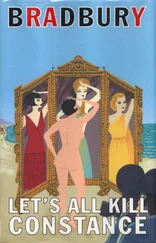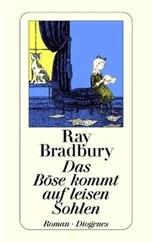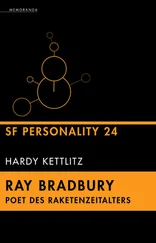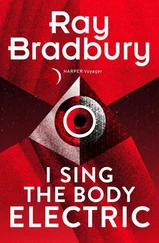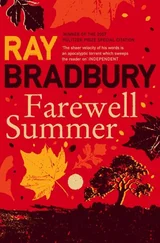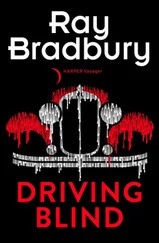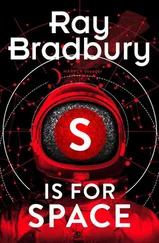‘What?’ asked Clemens.
‘The stars. Who’s ever touched one? I can see them, sure, but what’s the use of seeing a thing that’s a million or a billion miles away? Anything that far off isn’t worth bothering with.’
‘Why did you come on this trip?’ asked Clemens suddenly.
Hitchcock peered into his amazingly empty milk glass and clenched it tight, then relaxed his hand and clenched it again. ‘I don’t know.’ He ran his tongue on the glass rim. ‘I just had to, is all. How do you know why you do anything in this life?’
‘You liked the idea of space travel? Going places?’
‘I don’t know. Yes. No. It wasn’t going places. It was being between.’ Hitchcock for the first time tried to focus his eyes upon something, but it was so nebulous and far off that his eyes couldn’t make the adjustment, though he worked his face and hands. ‘Mostly it was space. So much space. I liked the idea of nothing on top, nothing on the bottom, and a lot of nothing in between, and me in the middle of the nothing.’
‘I never heard it put that way before.’
‘ I just put it that way; I hope you listened.’
Hitchcock took out his cigarettes and lit up and began to suck and blow smoke, again and again.
Clemens said, ‘What sort of childhood did you have, Hitchcock?’
‘I was never young. Whoever I was then is dead. That’s more of your quills. I don’t want a hideful, thanks. I’ve always figured it that you die each day and each day is a box, you see, all numbered and neat; but never go back and lift the lids, because you’ve died a couple of thousand times in your life, and that’s a lot of corpses, each dead a different way, each with a worse expression. Each of those days is a different you, somebody you don’t know or understand or want to understand.’
‘You’re cutting yourself off, that way.’
‘Why should I have anything to do with that younger Hitchcock? He was a fool, and he was yanked around and taken advantage of and used. His father was no good, and he was glad when his mother died, because she was the same. Should I go back and see his face on that day and gloat over it? He was a fool.’
‘We’re all fools,’ said Clemens. ‘all the time. It’s just we’re a different kind each day. We think, I’m not a fool today. I’ve learned my lesson. I was a fool yesterday but not this morning. Then tomorrow we find out that, yes, we were a fool today too. I think the only way we can grow and get on in this world is to accept the fact that we’re not perfect and live accordingly.’
‘I don’t want to remember imperfect things,’ said Hitchcock. ‘I can’t shake hands with that younger Hitchcock, can I? Where is he? Can you find him for me? He’s dead, so to hell with him! I won’t shape what I do tomorrow by some lousy thing I did yesterday.’
‘You’ve got it wrong.’
‘Let me have it then.’ Hitchcock sat, finished with his meal, looking out the port. The other men glanced at him.
‘Do meteors exist?’ asked Hitchcock.
‘You know damn well they do.’
‘In our radar machines – yes, as streaks of light in space. No, I don’t believe in anything that doesn’t exist and act in my presence. Sometimes’ – he nodded at the men finishing their food – ‘sometimes I don’t believe in anyone or anything but me.’ He sat up. ‘Is there an upstairs to this ship?’
‘Yes.’
‘I’ve got to see it immediately.’
‘Don’t get excited.’
‘You wait here; I’ll be right back.’ Hitchcock walked out swiftly. The other men sat nibbling their food slowly. A moment passed. One of the men raised his head. ‘How long’s this been going on? I mean Hitchcock.’
‘Just today.’
‘He acted funny the other day too.’
‘Yes, but it’s worse today.’
‘Has anyone told the psychiatrist?’
‘We thought he’d come out of it. Everyone has a little touch of space the first time out. I’ve had it. You get wildly philosophical, then frightened. You break into a sweat, then you doubt your parentage, you don’t believe in Earth, you get drunk, wake up with a hangover, and that’s it.’
‘But Hitchcock don’t get drunk,’ said someone. ‘I wish he would.’
‘How’d he ever get past the examining board?’
‘How’d we all get past? They need men. Space scares the hell out of most people. So the board lets a lot of borderlines through.’
‘That man isn’t a borderline,’ said someone. ‘He’s a fall-off-a-cliff-and-no-bottom-to-hit.’
They waited for five minutes. Hitchcock didn’t come back.
Clemens finally got up and went out and climbed the circular stair to the flight deck above. Hitchcock was there, touching the wall tenderly.
‘It’s here,’ he said.
‘Of course it is.’
‘I was afraid it might not be.’ Hitchcock peered at Clemens. ‘And you’re alive.’
‘I have been for a long time.’
‘No,’ said Hitchcock. ‘Now, just now, this instant , while you’re here with me, you’re alive. A moment ago you weren’t anything.’
‘I was to me,’ said the other.
‘That’s not important. You weren’t here with me,’ said Hitchcock. ‘Only that’s important. Is the crew down below?’
‘Yes.’
‘Can you prove it?’
‘Look, Hitchcock, you’d better see Dr Edwards. I think you need a little servicing.’
‘No. I’m all right. Who’s the doctor, anyway? Can you prove he’s on this ship?’
‘I can. All I have to do is call him.’
‘No. I mean, standing here, in this instant, you can’t prove he’s here, can you?’
‘Not without moving, I can’t.’
‘You see. You have no mental evidence. That’s what I want, a mental evidence I can feel . I don’t want physical evidence, proof you have to go out and drag in. I want evidence that you can carry in your mind and always touch and smell and feel. But there’s no way to do that. In order to believe in a thing you’ve got to carry it with you. You can’t carry the Earth, or a man, in your pocket. I want a way to do that, carry things with me always, so I can believe in them. How clumsy to have to go to all the trouble of going out and bringing in something terribly physical to prove something. I hate physical things because they can be left behind and it becomes impossible to believe in them.’
‘Those are the rules of the game.’
‘I want to change them. Wouldn’t it be fine if we could prove things with our mind, and know for certain that things are always in their place? I’d like to know what a place is like when I’m not there . I’d like to be sure .’
‘That’s not possible.’
‘You know,’ said Hitchcock, ‘I first got the idea of coming out into space about five years ago. About the time I lost my job. Did you know I wanted to be a writer? Oh yes, one of those men who always talk about writing but rarely write. And too much temper. So I lost my good job and left the editorial business and couldn’t get another job and went on downhill. Then my wife died. You see, nothing stays where you put it – you can’t trust material things. I had to put my boy in an aunt’s trust, and things got worse; then one day I had a story published with my name on it, but it wasn’t me.’
‘I don’t get you.’
Hitchcock’s face was pale and sweating.
‘I can only say that I looked at the page with my name under the title. By Joseph Hitchcock. But it was some other man. There was no way to prove – actually prove, really prove – that that man was me. The story was familiar – I knew I had written it – but that name on the paper still was not me. It was a symbol, a name. It was alien. And then I realized that even if I did become successful at writing, it would never mean a thing to me, because I couldn’t identify myself with that name. It would be soot and ashes. So I didn’t write any more. I was never sure, anyway, that the stories I had in my desk a few days later were mine, though I remembered typing them. There was always that gap of proof. That gap between doing and having done. What is done is dead and is not proof, for it is not an action. Only actions are important. And pieces of paper were remains of actions done and over and now unseen. The proof of doing was over and done. Nothing but memory remained, and I didn’t trust my memory. Could I actually prove I’d written these stories? No. Can any author? I mean proof . I mean action as proof. No. Not really. Not unless someone sits in the room while you type, and then maybe you’re doing it from memory. And once a thing is accomplished there is no proof, only memory. So then I began to find gaps between everything. I doubted I was married or had a child or ever had a job in my life. I doubted that I had been born in Illinois and had a drunken father and swinish mother. I couldn’t prove anything. Oh yes, people could say, ‘You are thus-and-so and such-and-such,’ but that was nothing.’
Читать дальше
